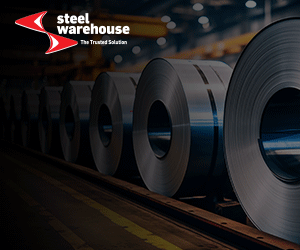PROTECTION DEFLECTIONS
Buy American . . . Part Two: Does it really mean more jobs? Some other viewpoints on how manufacturers will be affected by the new federal stimulus bill.
Posted: March 6, 2009
MIXED BAG
The Buy American act of the U.S. stimulus bill is a mixed bag that raises protectionist pressure but has been implemented in a way that meets global trade rules, says the head of the World Trade Organization.
WTO Director-General Pascal Lamy told reporters at a conference in Seoul that he expects the downturn in global trade could last through next year and said protectionist measures are not the way to solve the problem. "The bad news is that protectionist pressures are there," states Lamy about Buy American measures. On a brighter note, he adds, "the final compromise is that this provision will be implemented in a way that is consistent with U.S. WTO obligations."
The final version of the Buy American measure requires public works and building projects funded by the stimulus package to use only U.S.-made goods, including iron and steel. But it also requires that it be done in a manner consistent with U.S. trade pacts – giving Canada, the European Union, Japan and a short list of other trading partners some comfort that they could share in the expanded U.S. public works market created by the stimulus bill.
Earlier this month, the WTO warned that the risk of a global lurch into protectionism is getting worse, though trade measures taken to tackle the financial crisis have not seriously fueled it so far. "In times of economic hardship, people need protection. But there are many ways to protect people that are better than protectionism, which at the end of the day does not protect anybody," explains Lamy.
JACK OF ALL TRADES
For more than 75 years, Buy America laws have been on the books. Free market advocate Ronald Reagan actually expanded Buy America rules in 1982, in the midst of a recession. No trade war was sparked then; no trade war will be sparked now.
He called for a successful conclusion of the Doha round of trade talks, asking members not to exacerbate the situation and urging improved global financing of trade. "Among the many reasons why we have a trade problem is the drying up of trade finance," he remarks.
Reported by Jon Herskovitz in Seoul, South Korea
SOUND POLICY
Buy America rules represent sound policy and good economics, despite the pandemonium they've created among the Davos set. By requiring the purchase of American-made manufactured goods for infrastructure projects to the extent permitted by our trade agreements, these rules will ensure that domestic manufacturing shares in economic recovery efforts.
That, in turn, will strengthen America, since manufacturing offers a tremendous value added through innovation, high-wage jobs, and products that secure our nation's defense. For more than 75 years, Buy America laws have been on the books. So it would have been highly unusual if they did not apply to this massive new investment in America's infrastructure. Free market advocate Ronald Reagan actually expanded Buy America rules in 1982, in the midst of a recession. No trade war was sparked then; no trade war will be sparked now.
The spurious comparison to the 1929 Smoot-Hawley tariffs is nothing more than a scare tactic. Global trade is shrinking because economies are collapsing. The best way to spur global growth is to get America's economy back on track. Buy America will help that by jumpstarting factory orders, but it will not affect the $4 trillion in goods and services that cross our border every year.
Existing Buy America requirements have never been successfully challenged in venues like the World Trade Organization (WTO). Why? Because the U.S., like most other industrialized nations, has reserved the right, in some cases, to spend its own tax dollars without oversight from international bureaucrats.
That said, the U.S. is a founding member of the Government Procurement Agreement (GPA) and a leader in opening procurement markets, including our own. We grant reciprocal access to countries that are a party to the GPA, and Buy America requirements are always waived or modified to ensure compliance with our obligations. Nations that do not grant reciprocal access – like China, India and Russia – do not get a free pass, nor should they.
MULTIPLY HIGH
Studies show that sourcing exclusively from U.S.-made materials creates one-third more manufacturing jobs. The American manufacturing base generates four to five new jobs for each manufacturing job created. The proposed economic recovery investment in infrastructure could potentially put hundreds of thousands of workers in construction and services back on the job.
Much of the debate on the stimulus package focused on what would or would not be effective in putting people back to work and promoting economic growth. But perhaps the biggest problem – called "leakage" – was almost completely overlooked: Leakage occurs when tax dollars geared toward stimulating domestic economic activity end up being spent overseas instead of generating domestic job growth.
A good example of leakage was the tax rebate stimulus checks of 2008. American consumers who chose to spend their rebates likely devoted a sizable portion of that spending to imported goods. Such purchases stimulate the economy of China, but drive our nation deeper into debt without creating new jobs. With Buy America rules, leakage is prevented because government spending is directed to domestic manufacturing and workers.
The proposed economic recovery package's investment in infrastructure has the potential to put hundreds of thousands of workers in construction and services back on the job. But it will only put manufacturing workers back to work if American-made materials are purchased with our tax dollars.
Sourcing exclusively from U.S.-made materials creates one-third more manufacturing jobs, according to a study by the Political Economy Research Institute (PERI) at the University of Massachusetts-Amherst. Purchasing high-quality American-made materials for infrastructure yields an enormous productivity dividend, both in terms of jobs created and the overall reward to the economy. The American manufacturing base generates four to five new jobs for each manufacturing job created. Put simply, those are precisely the types of jobs we need right now.
U.S. manufacturing shed 800,000 jobs last year and 200,000 last month alone. Ensuring that tax dollars are used to buy American-made materials, when allowed by our trade obligations, is sound policy to bring some of those jobs back. There is no reason to abandon this decades-long practice in the economic recovery package, especially when jobs are disappearing and factory production is at record lows.
Scott Paul is executive director of Alliance for American Manufacturing (AAM), a labor-management partnership of several leading U.S. manufacturers and the United Steelworkers.














